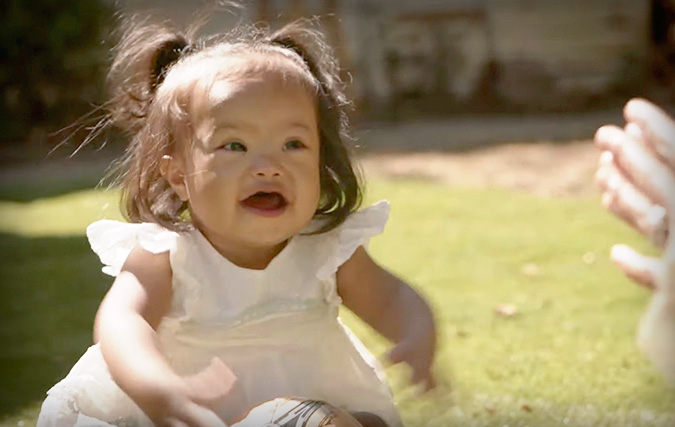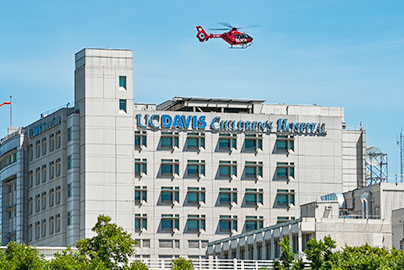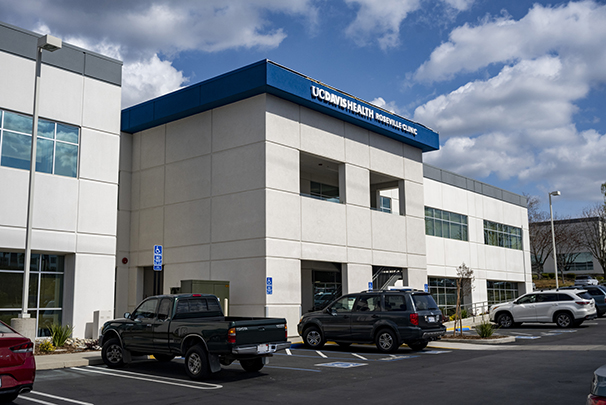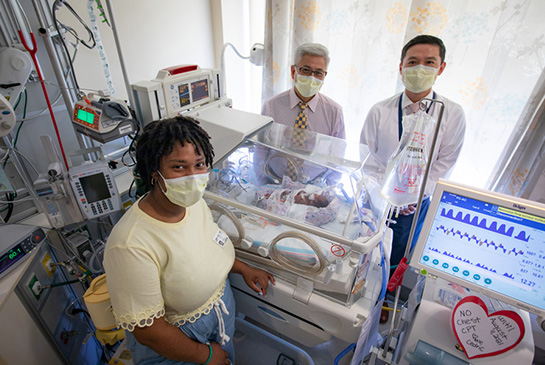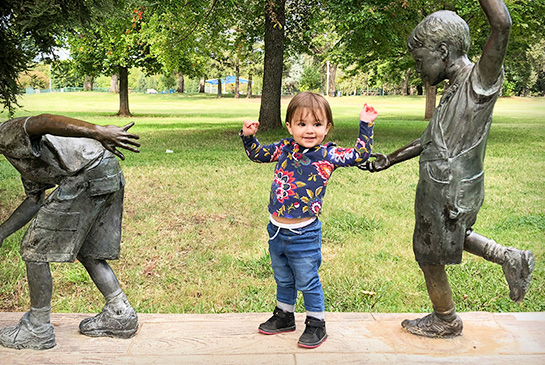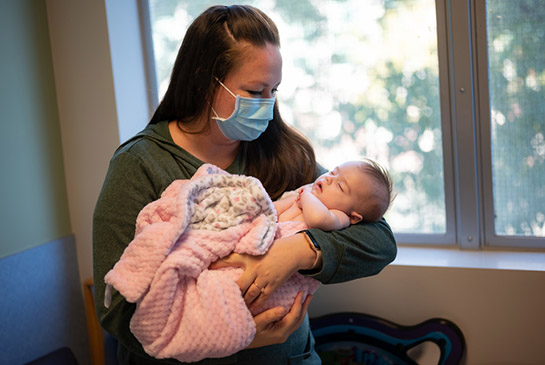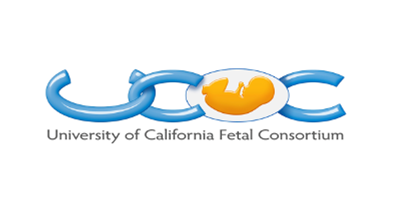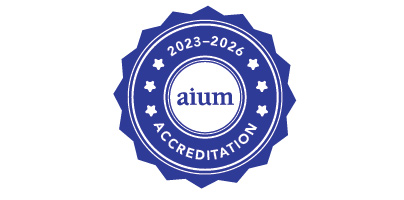Early diagnosis and care for heart defects
Our pediatric heart specialists use state-of-the-art technology that can detect congenital heart defects before the birth of your child.
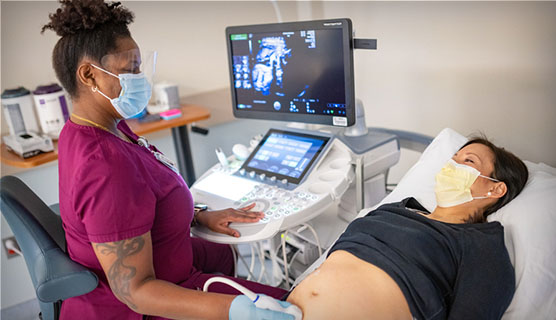
Pediatric Heart Center
UC Davis Fetal Surgery Patient and Family Testimonials
Fetal cardiology services
Our team of fetal cardiology specialists believe in family-centered and patient-driven care; care that is based on building individual relationships with patients and their families.
We work with our families to provide them with expert evaluation, diagnosis, management, and counseling of congenital heart defects.
What we offer
- State-of-the-art fetal echocardiography technology that can detect heart defects before the birth of your child as early as 12 weeks gestation
- Comprehensive diagnosis, counseling and care plan for you and your family the same day as your echocardiogram
- 24/7 access to a full range of obstetric and pediatric medical specialties including pediatric cardiology, pediatric cardiothoracic surgery, perinatology, fetal/pediatric surgery and neonatology
- Close collaboration with other physicians and specialists in the Fetal Care and Treatment Center, the first comprehensive multidisciplinary fetal diagnosis and therapy center in inland Northern California
- The region’s only level IV Neonatal Intensive Care Unit
- Access to the full Pediatric Heart Center team and the most advanced fetal heart interventions
- Dedicated fetal cardiology coordinator and social worker to manage all your care needs
- A wealth of education about heart anomalies, treatment options and potential outcomes
-
Some babies have a higher risk of congenital heart disease. Current recommendations for a fetal echocardiogram include:
- Concerns on a routine obstetrical ultrasound
- In vitro fertilization (IVF) or assisted reproductive technology
- Increased nuchal translucency
- Family history of congenital heart disease (1st degree relative)
- Abnormality of another organ system
- Abnormal fetal heart rate or rhythm
- Known or suspected fetal genetic condition
- Monochorionic twin pregnancies
- Abnormal maternal blood screening
- Diabetes mellitus (pre-gestational and gestational)
- Maternal phenylketonuria (PKU)
- Maternal autoimmune disease (lupus)
- Maternal use of certain medications
- Exposure to certain viral infections
- Presence of hydrops
- Inability to fully visualize the cardiac structures
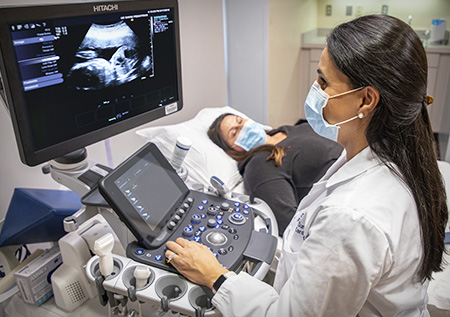
A fetal echocardiogram is an ultrasound of your unborn child’s heart. This test is used to look at the structure, function (or squeeze) and rhythm of the fetus’ heart.
The ultrasound is performed by a specially trained fetal cardiac ultrasound sonographer and the images are immediately interpreted by a doctor with specialty training in pediatric cardiology and fetal cardiology.
Find out more about the fetal heart | In Spanish | In Chinese | In Punjabi | In Russian.
Each year in the United States, some 40,000 children are born with congenital heart defects; worldwide about 1.5 million children are affected. Technology now permits cardiologists and surgeons to accurately diagnose abnormalities before birth and perform intricate corrections on newborns so that many affected children can lead normal lives.
A fetal echocardiogram is an ultrasound of your unborn child’s heart. This test is used to look at the structure, function and rhythm of the heart. The ultrasound is performed by a specially trained fetal cardiac ultrasound sonographer and the images are immediately interpreted by a doctor with specialty training in pediatric cardiology and fetal congenital heart disease.
Certain women are at a higher risk of having a baby with congenital heart disease. Current recommendations for a fetal echocardiogram include:
- In vitro fertilization (IVF) or assisted reproductive technology (as published, up to 2x the risk)
- Concerns on a routine obstetrical ultrasound
- Increased nuchal translucency
- Family history of congenital heart disease (1st degree relative)
- Abnormality of another organ system
- Abnormal fetal heart rate or rhythm
- Known or suspected fetal genetic condition
- Monochorionic twin pregnancies
- Abnormal maternal blood screening
- Insulin dependent diabetes mellitus
- Maternal phenylketonuria (PKU)
- Maternal autoimmune disease (lupus)
- Maternal use of certain medications
- Exposure to certain viral infections
- Presence of hydrops
The best gestational age for a fetal ultrasound is between 18 to 22 weeks. However, fetal echocardiograms can be performed as early as 16 weeks and throughout your pregnancy.
There are some heart abnormalities that cannot be detected prenatally, including mild valve abnormalities and small holes between the chambers of the heart. There are also some heart defects that are not evident until after the baby is born.
After the ultrasound, the doctor (fetal cardiologist) will immediately give you the results. If the ultrasound is normal, typically no other testing is needed. If heart defects are seen on the ultrasound, additional testing may be recommended. This may include additional echocardiograms, genetic testing, and consultations with other doctors (fetal surgeon, pediatric cardiothoracic surgeon, perinatologist, neonatologist).
-
Sherzana Sunderji, M.D.
View full bio for Sherzana Sunderji, M.D.arrow_forwardSherzana Sunderji, M.D., is a fetal and pediatric cardiologist in the Pediatric Heart Center and serves as director of fetal cardiology and echocardiography. Her clinical interests include the diagnosis, evaluation and management of congenital and acquired heart disease from fetus to adult. She specializes in fetal diagnosis and management of congenital heart disease, as well as fetal, transthoracic and transesophageal echocardiography.
Director, UC Davis Pediatric and Adult Congenital Cardiopulmonary Exercise Laboratory
Associate Professor, Department of Pediatrics, Division of Pediatric Cardiology
- Specialties
- Pediatric Cardiology
- Fetal Cardiology
- Adult Congenital Cardiology
- Congenital Anomalies
- Physiology
Assistant Professor, Department of Pediatrics
- Specialties
- Pediatric Cardiology
- Fetal Cardiology
- Location(s) Phone:
- 916-783-7109
- Phone: 916-783-7109
- Fax: 916-783-0470
Director, Fetal Cardiology & Echocardiography
Associate Professor, Division of Pediatric Cardiology
- Specialties
- Fetal Cardiology
- Fetal Echocardiography
- Pediatric Cardiology
- Pediatric Cardiology Advanced Imaging
- Location(s)
- Phone: 916-734-3456
Medical Director, UC Davis Pediatric Echocardiography
Associate Professor, Department of Pediatrics
- Specialties
- Pediatric Cardiology
- Echocardiography
- Fetal Echocardiography
- Fetal Cardiology
- Location(s)
- Phone: 800-2-UCDAVIS (800-282-3284)
- Phone: 916-734-2011
Director, UC Davis Pediatric and Adult Congenital Cardiopulmonary Exercise Laboratory
Associate Professor, Department of Pediatrics, Division of Pediatric Cardiology
- Specialties
- Pediatric Cardiology
- Fetal Cardiology
- Adult Congenital Cardiology
- Congenital Anomalies
- Physiology
Assistant Professor, Department of Pediatrics
- Specialties
- Pediatric Cardiology
- Fetal Cardiology
- Location(s) Phone:
- 916-783-7109
- Phone: 916-783-7109
- Fax: 916-783-0470
Director, Fetal Cardiology & Echocardiography
Associate Professor, Division of Pediatric Cardiology
- Specialties
- Fetal Cardiology
- Fetal Echocardiography
- Pediatric Cardiology
- Pediatric Cardiology Advanced Imaging
- Location(s)
- Phone: 916-734-3456
Medical Director, UC Davis Pediatric Echocardiography
Associate Professor, Department of Pediatrics
- Specialties
- Pediatric Cardiology
- Echocardiography
- Fetal Echocardiography
- Fetal Cardiology
- Location(s)
- Phone: 800-2-UCDAVIS (800-282-3284)
- Phone: 916-734-2011
Director, UC Davis Pediatric and Adult Congenital Cardiopulmonary Exercise Laboratory
Associate Professor, Department of Pediatrics, Division of Pediatric Cardiology
- Specialties
- Pediatric Cardiology
- Fetal Cardiology
- Adult Congenital Cardiology
- Congenital Anomalies
- Physiology
Assistant Professor, Department of Pediatrics
- Specialties
- Pediatric Cardiology
- Fetal Cardiology
- Location(s) Phone:
- 916-783-7109
- Phone: 916-783-7109
- Fax: 916-783-0470
Director, Fetal Cardiology & Echocardiography
Associate Professor, Division of Pediatric Cardiology
- Specialties
- Fetal Cardiology
- Fetal Echocardiography
- Pediatric Cardiology
- Pediatric Cardiology Advanced Imaging
- Location(s)
- Phone: 916-734-3456
Medical Director, UC Davis Pediatric Echocardiography
Associate Professor, Department of Pediatrics
- Specialties
- Pediatric Cardiology
- Echocardiography
- Fetal Echocardiography
- Fetal Cardiology
- Location(s)
- Phone: 800-2-UCDAVIS (800-282-3284)
- Phone: 916-734-2011
Referring physicians from other facilities, patients and families can contact us for more information about our fetal cardiology services including fetal echocardiography services. Please use our Fetal Care and Treatment Center Referral form to refer patients and request services.
For referrals, diagnostics and appointments
Email us
-
Main clinic location
Fetal Care and Treatment Center
Our fetal cardiology program is located within the Fetal Care and Treatment Center at UC Davis Children’s Hospital.
4301 X St. Suite 1501
Sacramento, CA 95817Contact number: 916-794-2229
-
UC Davis Health in Roseville
Pediatric cardiology clinic for evaluation and referrals.
1620 East Roseville Pkwy., Suite 200
Roseville, CA 95661Contact number: 916-794-2229
-
Prenatal Diagnosis of Northern California
Fetal clinic for evaluation and referrals.
5757 Pacific Ave., Suite A-132
Stockton, CA 95207Contact number: 916-794-2229
-
Fetal Heart Society
More about the Fetal Heart Societyarrow_forwardFetal Heart Society’s mission is to advance the field of fetal cardiovascular care & science through collaborative research, education and mentorship.
-
The University of California Fetal Consortium
Learn more about the fetal consortiumarrow_forwardThe University of California Fetal Consortium is a transdisciplinary collaboration among the five University of California medical centers aimed at optimizing maternal, fetal, and neonatal outcomes by sharing expertise, training, and scholarship to identify and implement high-value, best-care practices.
-
NAFTNet
Learn more about NAFTNetarrow_forwardThe North American Fetal Therapy Network (NAFTNet) is a voluntary association of 36 medical centers in both the United States, Canada and Mexico that perform advanced in-utero fetal therapeutic procedures.
-
International Fetal Medicine and Surgery Society
Learn more about the IFMSS.arrow_forwardThe International Fetal Medicine and Surgery Society is a group of medical professionals striving to promote and encourage the development and advancement of the fetal diagnosis and therapy field.
-
The Association for Medical Ultrasound
Learn more about the AIUM.arrow_forwardThe Association for Medical Ultrasound is dedicated to advancing the safe and effective use of ultrasound in medicine.


